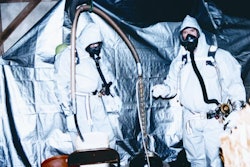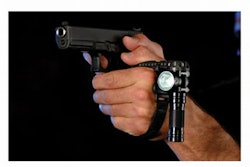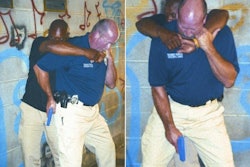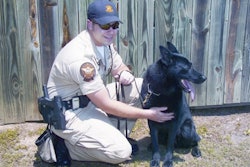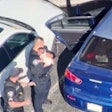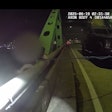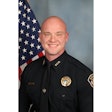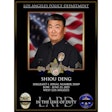The best part of being able to write this column over the last two years has been getting to meet so many amazing police leaders at every rank, from across the country. I have wanted to have at least one guest columnist at least once a year, so someone else has a chance to put some ideas out there.
When I received this piece from Roy Alston, I knew I had found someone who was a "like-minded leader." Although technology has been heralded as law enforcement's saving grace for the future, we are reaching critical mass when it comes to leadership within our profession. Thirty years ago, servicemen were leaving the post-Vietnam military and joining our police departments. Many of these men (and some women) had experience leading in combat conditions. Now that these fine individuals are retiring en masse, we are on the verge of a law enforcement leadership vacuum.
In crisis, I always recommend returning to the basics. Roy recently presented his ideas on formalized leadership training to the Texas Commission on Law Enforcement Officer Standards and Education (TCLEOSE).
--Mark Stainbrook
Los Angeles, CA
WHAT POLICE OFFICERS NEED
I have had the honor and privilege of speaking in front of law enforcement organizations about leadership and leadership development for law enforcement professionals. Inevitably, I am always asked, "What do police officers need to meet the demands of a post-9/11 world?" I like this question because it gets right to the point. Our world has changed and law enforcement professionals, especially those charged with training, realize we need something that we have not been getting in law enforcement now more than ever. Police officers need effective leadership. This statement warrants stating again: Police officers need effective leadership! In order to provide effective leadership to police officers we must develop effective police leaders at every level.
Becoming an effective law enforcement leader requires knowledge about the leadership process, training resulting in performance improvement, experience, and a commitment to the values of the law enforcement agency one serves.
Knowledge
Knowledge of leadership comes from the many leadership books that are available. An effective police leader understands the definition of leadership as the ability to influence human behavior as well as current basic and advanced leadership theories, and has been exposed to a learning environment that facilitates the complete understanding of leadership as it relates to the law enforcement profession. Leadership is a learned activity. There are very few people who have "natural" leadership abilities, just like there are very few people who have "natural" surgical abilities.
Training
Law enforcement leadership training must begin with the police officer recruit in the police academy. If the first time a police officer is exposed to any type of leadership training is when he or she becomes a field training officer or supervisor, then we have set that officer up for failure and we have diminished the potential of human performance. Recruits need to be taught basic self leadership skills that focus on making them better as individuals to meet the demands of policing, society, and the organization they will join when their training is complete.
From the very first time a police officer steps out of his squad car he is expected to influence human behavior. Citizens are expecting police officers to effectively and efficiently solve their problems whether it's a domestic violence issue or directing traffic at an accident scene. Today, more than ever, society expects police officers to lead and, now more than ever, we must to teach them how. As a police officer's career progresses, we must expose him to a leadership training continuum that matches the breadth and depth of leadership training required in each position of leadership a police officer can have before he takes that leadership position.
Remember, leadership is a learned event. Do we have to guess an airline pilot is rated to fly a 747 across country? Then why are we guessing that our police officers and police leaders are ready to lead when we know we have not specifically trained them to do so?
Experience
In my travels, I am always amazed at the many police officers who tell me horror stories of police leaders who take over a unit and have no idea what the officers in that unit do. Police leaders must have a functional knowledge of the jobs that their officers do day in and day out. In fact, they should know enough about their officers' jobs to step in and do any of the jobs themselves if necessary. Never forget that events beyond our control can force every police officer onto the street to do basic police work.
As a police officer progresses in his career he should want to move around the department to get exposed to many different things. This helps build experience. Far too many officers get in a patrol car and leave it only when it is time to retire. Often, this is not by their own choice. Talk about a waste of leadership potential! Departments should review closely their policy and procedures regarding police officers' movement throughout the agency. This is especially true of larger departments that have many functional areas and can afford officers a rich array of experiences.
Commitment to Values
In my motivational leadership training seminars, I always ask the participants to write down their organization's mission statement and values. Many times--and I mean 99 percent of the time--the participants are unable to clearly state either, even though this information is readily available. Why is this? Because we as law enforcement professionals have not committed to making sure that everyone in the organization not only knows the mission statement and values of the organization, but that they live by the mission statement and values of the organization.
When I was a cadet at West Point I was made to memorize General of the Army Douglas MacArthur's speech to the Corps of Cadets upon his acceptance of the Thayer Award. In this speech General MacArthur said, "Duty, Honor, Country. Those three hallowed words reverently dictate what you ought to be, what you can be, what you will be. They are your rallying points, to build courage when courage seems to fail, to regain faith when there seems to be little cause for faith, to create hope when hope becomes forlorn."
There was no doubt in my mind as a cadet at West Point what West Point valued and what I had to value as a cadet at West Point and as a commissioned officer in the Army. So, why is this just as important in law enforcement? Values are the very foundation for the competence of any leader. Values influence how police leaders think, how they treat other officers, and how they treat the very citizens they have sworn to protect and serve. Values provide guidance and influence decision making. Values are the moral compass of every police organization, and without values an inferior ethical climate will prevail.
I remember, vividly, the plane ride to the Persian Gulf during the first Gulf War. I was a second lieutentant and I had 10 soldiers in my fire support team. I had butterflies in my stomach and there was this sense of fear of the unknown, but in my heart and mind echoed, "Duty, Honor, Country. Those three hallowed words...."
The bottom line is this: Leadership training for all police officers has the potential to be a superior investment for all police agencies across the country. Effective leadership training for police officers can and will result in reduced liability; fewer complaints; proactive officers who have a broader perspective of policing and the importance of their roles; police officers who better understand policy and policy changes; and, most importantly, motivated professional police officers who are better prepared to meet the current and future challenges of policing in a post-9/11 world.




